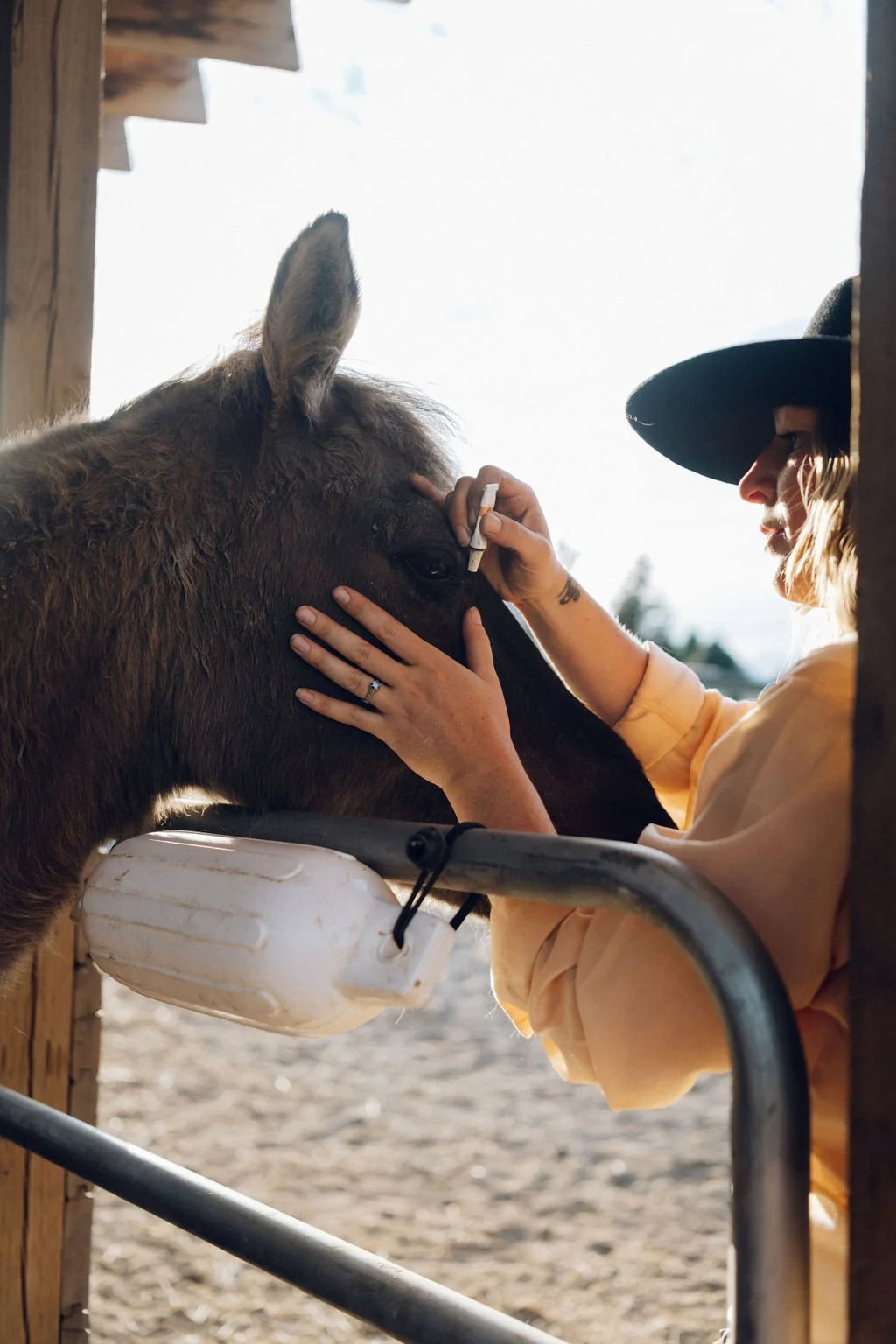Empower yourself with the knowledge and skills needed to understand horse behavior, train your horse, and build a deeper bond with your equine companion.
At Positive Partnership, we specialize in positive reinforcement training—an effective, science-based method that minimizes stress and promotes horse and human welfare. Whether you are looking to enhance husbandry practices, improve ridden behaviours, or develop better handling techniques, our coaching and educational services will help you create a stronger partnership with your horse.
All of our equine training services use:
a LIMA approach
a trauma-informed approach
a Fear Free approach
an ethical application of R+
an accredited trainer
evidence-based information and techniques
Please read the about page for education and accreditations.
-
Are you curious about using positive reinforcement with your horse? Or have you already started and are looking for support? Work with Sara in private or semi-private sessions to develop your goals, implement a training plan, receive support in the process.
Coaching is done virtually. It can also be booked in-person location depending.
-
Cooperative care is a process that involves training an animal not only to tolerate handling and husbandry procedures but also to actively and willingly engage in these experiences. It focuses on building a positive and cooperative relationship between the animal and its caretakers to ensure the animal's well-being and welfare.
This is for you if:
You are new to cooperative care and just getting started.
You have tried cooperative care before and are having problems.
You are looking for coaching with your current cooperative care protocols.
You have a trauma case that is difficult to conduct husbandry procedures with.
Contact Sara to book your 1-1 coaching sessions and accomplish your cooperative care and husbandry goals.
-
Sara provides educational workshops and presentations to equine groups, organizations and private equine facilities.
The topics and presentation can be customized for your group's desired outcomes.
Typical presentation topics include:
Working with the whole horse when addressing behaviour (looking at the five domains, including nutrition and management).
Equine body language and pain recognition.
Equine and human safety.
Understanding and applying learning theory.
Positive reinforcement 101.
Cooperative care for horses.
Trauma-informed training practices and understanding trauma in horses.




